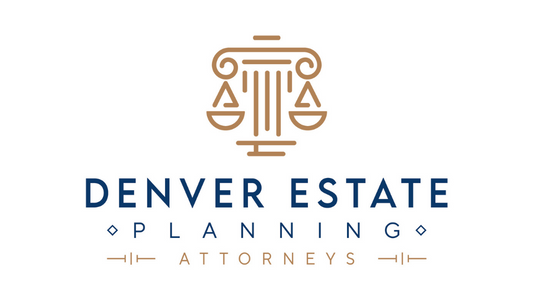ESTATE PLANNING
Last Will and Testament Attorney In Denver
A Last Will and Testament (or “Will”) is only one part of a complete estate plan. A complete estate plan along with a Will allows a person’s wishes to be carried out before and after their death. When you’re thinking about how to write a Will, there will be many issues that come up that should be considered in order to avoid probate, incapacity consequences, and to ensure that you receive appropriate long term care when you need it.
What is Your Main Goal in Setting up a Will And Estate Plan?
When a person dies, assets and debts are distributed by a probate court according to the terms of the person’s will. If you don’t have a Will, Colorado inheritance laws will determine the way that your assets and debts are transferred. Creating a valid Will ensures that your estate is handled the way that you want.
Most people’s estate planning goals will fit into one or all of these three categories:
- Plan for the administration of your estate
Decide who will receive your assets, how your assets will be distributed to them, and who will be responsible for these distributions.
- Plan for incapacity
Decide who will make medical and financial decisions for you if you are unable to make them for yourself.
- Plan for long-term care
Arrange for the caregiving of a family member and the costs associated with long-term care.
Call for legal service
A Last Will and Testament is the First Step in Your Estate Planning Journey
What is a Will and what will it do for you?
1. Plan for the Administration of Your Estate
If you’re like many people, you may equate estate planning with creating a Will. Indeed, a Last Will and Testament is an important part of estate planning, though there are several other components of a complete estate plan.
When planning for the administration of your estate, you have three options:
- The least appealing option is to do nothing, in which case you will be intestate and the administration of your estate will be handled by the state of Colorado.
- The second option is to simplify probate with a Will. A Will makes it easier for your executor to administer and distribute your assets to your heirs with limited court involvement.
- Finally, you may be able to bypass probate and court involvement altogether by strategically managing your assets with a Trust. This option ensures that assets are distributed to beneficiaries as soon as possible.
2. Plan For Incapacity
One crucial role of an estate planner is to help you plan for all potential future scenarios. While most people understand the need to plan for death, many people overlook the potential for illness, injury, and incapacity. In those cases how can you ensure that the decisions and actions made on your behalf will be undertaken according to your wishes?
There are two components to consider when planning for incapacity:
Financial Decisions
To ensure that financial decision-making is done in the way you want it to be, you may consider a Living Trust or a Durable Power of Attorney. A Durable (or Financial) Power of Attorney creates an ability to make financial and legal decisions on your behalf. For some more information see our blog on the Pros and Cons of having more than one Agent under a Financial Power of Attorney.
Medical Decisions
You can ensure that your medical wishes are carried out by appointing a Medical Power of Attorney (also called a Durable Healthcare Power of Attorney). Note that medical and Durable Powers of Attorney are created by separate documents, and both are required to ensure that all of your wishes are carried out in case of incapacity.
3. Plan For The Costs of Long-Term Care
Not only can long-term care deplete a life’s savings quickly but the role and responsibility of caregiver can have a huge effect on the family. By planning ahead for potential Long-Term Care Costs, you can remove the burden from family and protect assets for loved ones.
Planning for long-term care requires a “safety net” approach: contingency plans are put in place to meet potential care requirements and preserve assets for the healthy spouse, children, and beneficiaries. This is one of the places where finding an appropriate Trust can be hugely beneficial. Something like a Qualified Income Trust can help preserve eligibility for Medicaid and can be combined with strategies to preserve assets for your family.
Do I Need a Will?
Hopefully, you can see that there are a lot of other considerations when you’re thinking about a Will. Depending on your circumstances you should have either a Will, a Trust, or both. But that is just a part of a complete estate plan.
That’s why it’s important to talk to a professional estate planner. We can guide you through this process and help you find the best solution for your circumstances. Also, start by reading our blogs about some other issues that may come up when you’re thinking about a writing your Last Will and Testament:
- Individuals You Need to Consider Naming in Your Estate Plan.
- How to Store your Will to Avoid Issues with Probate.
- How children influence your estate plan.
- Passing on cherished personal belongings–what works, what doesn’t.
Call us For an Appointment
Please contact us by phone during business hours if you would like us to schedule a time to review your estate planning documents.
Call Us
Email us
Visit us
